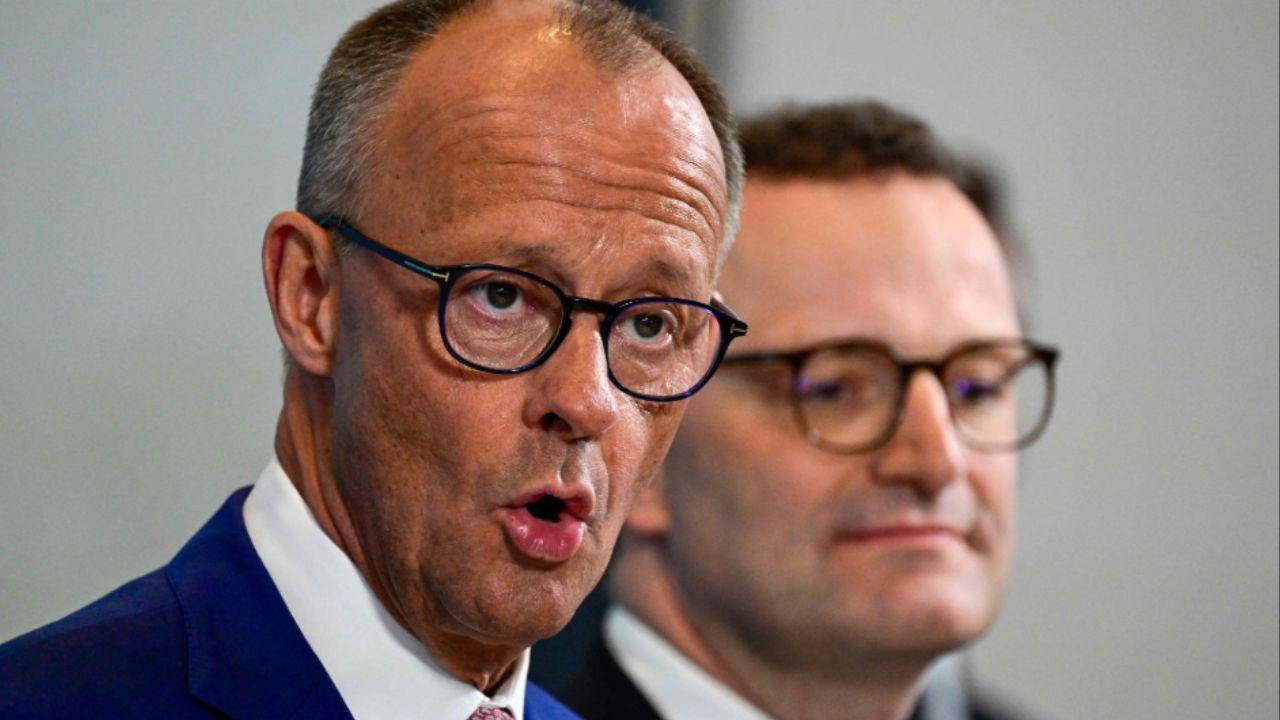The Germany lawmakers are set to elect their new 10th chancellor for the country on the eve of 80th anniversary of World War II. Friedrich Merz, the leader of Alternative for Germany party is seen to be the new chancellor

The leader of Germany's conservative Christian Democratic Union (CDU) party and designated chancellor Friedrich Merz
On the 80th anniversary of World War II, Germany is poised to elect a new Chancellor following the collapse of Olaf Scholz’s government last year. All eyes are on Conservative leader Friedrich Merz, who is seen as the frontrunner to become the country’s 10th Chancellor.
Merz leads the far-right Alternative for Germany (AfD), a party that has drawn significant controversy both domestically and internationally. As Germany remains one of the largest economies and most influential diplomatic powers in Europe, this election is being closely watched.
Merz’s election manifesto could focus on key issues including the ongoing war in Ukraine, U.S. trade policy under the Trump administration, Germany’s stagnant economy, and the growing influence of far-right, anti-immigrant sentiment. To secure the chancellorship, Merz needs to win the support of at least 316 out of 630 lawmakers in the Bundestag. The vote will be held via secret ballot in the restored Reichstag, where graffiti left by Soviet troops at the end of WWII has been preserved as a historical reminder according to AP.
If elected, Merz is expected to face intense scrutiny over his party’s far-right positions and anti-immigrant stance. Many other political parties have ruled out cooperation with the AfD, calling the move as a longstanding policy of maintaining a "firewall" against collaboration with extremist parties, a principle upheld since the end of WWII.
The U.S. has responded to the controversy, with Secretary of State Marco Rubio and Vice President JD Vance criticizing Germany’s domestic intelligence service for classifying the AfD as a threat to democratic order. They argue the classification is against human dignity by targeting the party's criticism of refugees and migrants. In contrast, German authorities maintain that the AfD, which placed second in national elections in February, promotes extremist views. This classification allows for broader surveillance of the party, says the reports from AP.
In response , Germany’s Foreign Ministry pushed back against Rubio’s remarks, defending the intelligence service’s decision. Meanwhile, Merz has not publicly commented on the classification or on the ongoing controversy.
The new governing coalition, expected to be led by Merz, includes the center-right Christian Democratic Union (CDU), its Bavarian sister party the Christian Social Union (CSU), and the center-left Social Democrats, Scholz’s own party. Together, they hold a modest majority of 328 out of 630 seats in the Bundestag.
The coalition aims to boost economic growth, increase defense spending, tighten migration policies, and modernize outdated infrastructure. Notably, the CDU and Social Democrats have previously governed together, including during three of former Chancellor Angela Merkel’s four terms from 2005 to 2021, according to AP.
Merz’s proposed cabinet includes senior lawmaker Johann Wadephul as Foreign Minister, a role the CDU last held in the 1960s.
The decision from the intelligence services and of the country’s Federal Office poses the questions, what if Merz fails to secure a majority, the Bundestag has 14 days to elect a Chancellor with an absolute majority. If that process fails, the German President may either appoint the candidate with the most votes or dissolve the Bundestag and call for new elections.
 Subscribe today by clicking the link and stay updated with the latest news!" Click here!
Subscribe today by clicking the link and stay updated with the latest news!" Click here!








